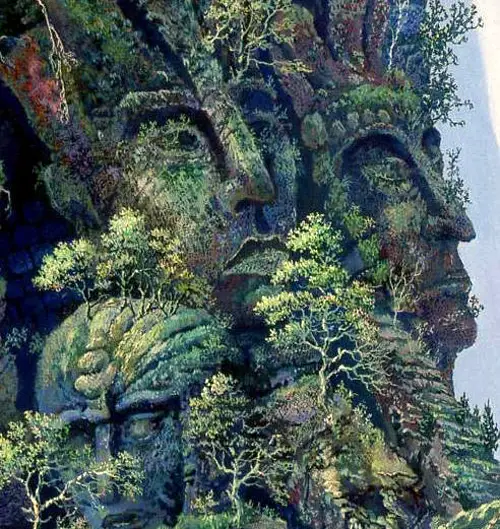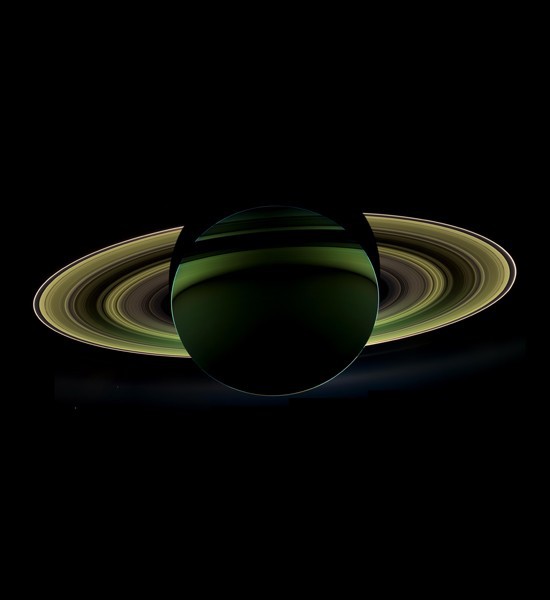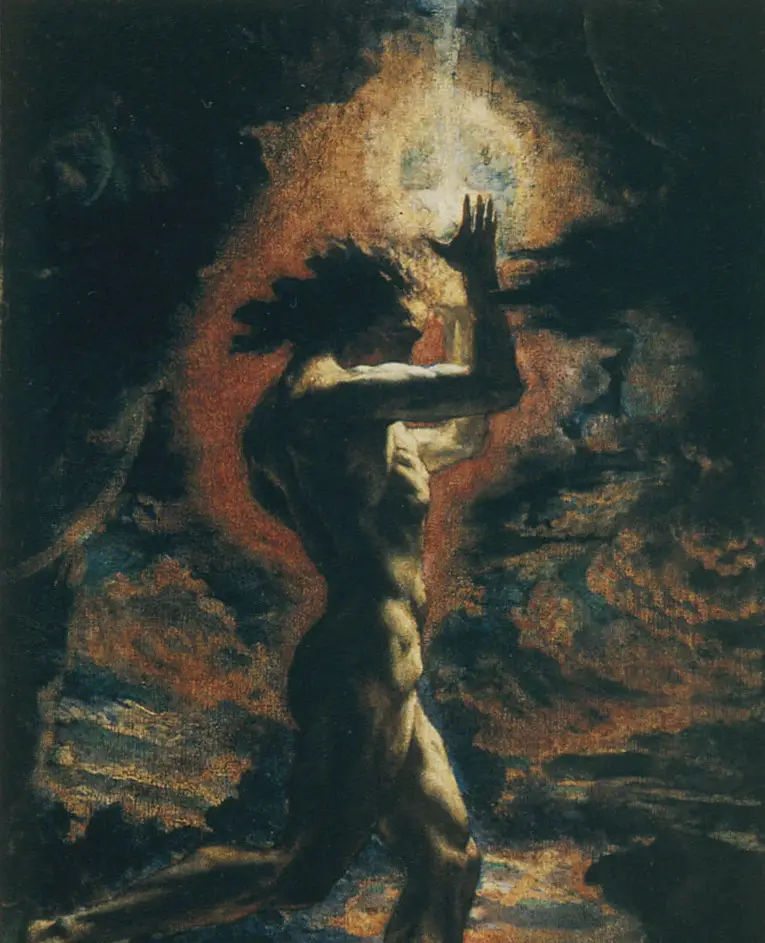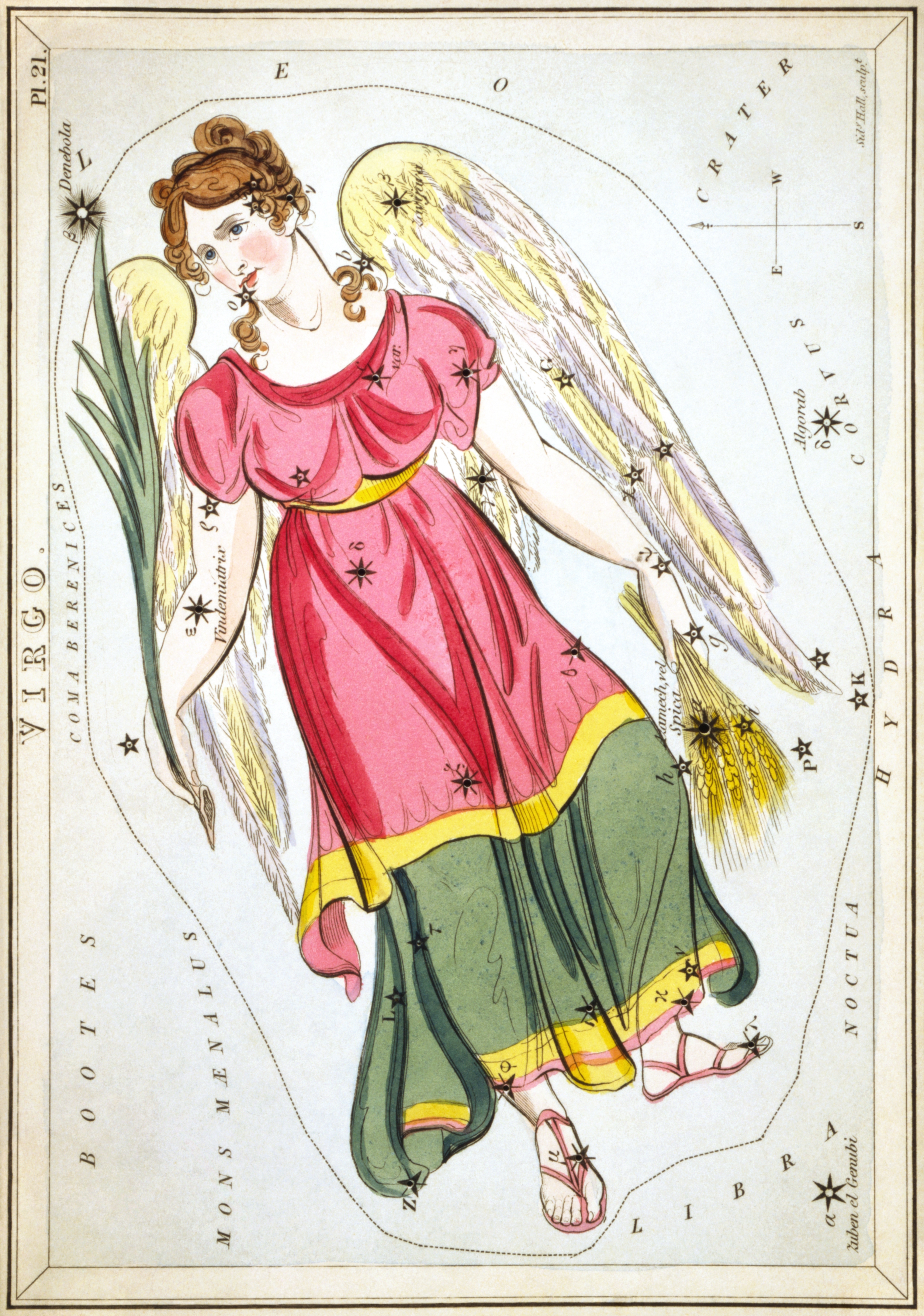Tag: Phaeton
Saturn, the Black Sun of the early days
An in-depth analysis of the most ancient sources in our possession leads us to the conclusion that, 'in illo tempore', in a perspective of "stellar symbolism" (and not yet "solar"), Saturn was considered the true King of Heaven.
The "Heavenly Fire": Kronos, Phaeton, Prometheus
di Andrew Casella
cover: Jean Delville, Prometheus, 1907)
[Continued from The astronomical significance of the Golden Age: Astrea and the "fall" of Phaeton]
In a Mongolian wedding prayer it is stated that: "Fire was born when Heaven and Earth separated": Therefore, before the celestial equator (Father Heaven) and the ecliptic (mother Earth) moved away (ie the inclination angle of about 23 ° of the ecliptic with respect to the equator was recorded), the" Fire " did not exist. At the beginning, the Milky Way united heaven, earth and the world of the dead: the southern part of the Galaxy, in correspondence with Scorpio and Sagittarius, is, for many traditions, the place dedicated to the collection of souls waiting to reincarnate.
The astronomical significance of the Golden Age: Astrea and the "fall" of Phaeton
di Andrew Casella
cover: Sidney Hall, representation of the Virgo constellation, taken from "Urania's Mirror", 1825)
(follows from Stellar symbolism and solar symbolism)
All the peoples of the world sang of a mythical "first time" of abundance, in which the gods walked the earth and all things were in harmony. The myth of the Golden Age fascinated poets from remote antiquity to the times of the Renaissance. Basically, it was believed to be a time of material wonders, in which the bodily well-being of men was guaranteed by the natural and infinite flow of milk and honey. But are things really as the poets sang? What was the Golden Age really? The poets themselves, on the other hand, have preserved (consciously or not) some revelatory clues to the mystery, which refer, once again, to the celestial vault.




